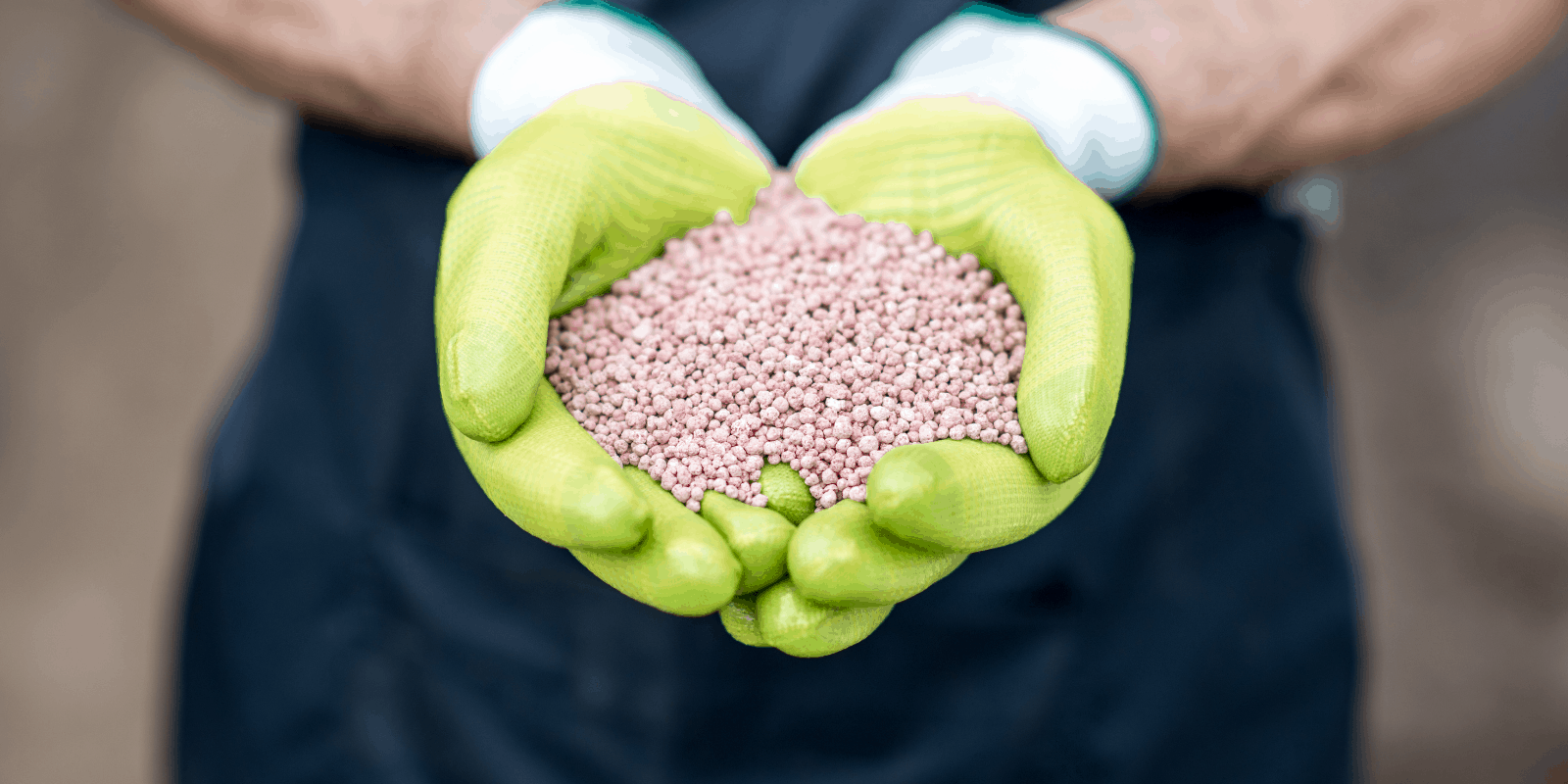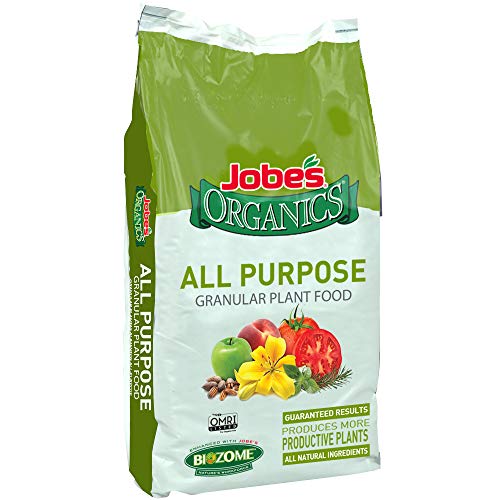Plants need nourishment to grow. Throughout nature, plants use bacteria…
…and fungi to scavenge nutrients from various sources…
…including soil nutrients and gases released during decomposition.
However, these systems are not as robust under cultivation.
All houseplants, from lawn grass to houseplants, need a little help to thrive. Fertilizer can help.
Organic fertilizer support and stimulate plants’ natural processes of self-feeding.
Microorganisms in the soil consume the fertilizer, releasing its nutrients to the plants.
The result is improved soil aeration and water holding capacity…
…as well as a healthier physical environment for plants.
Organic fertilizer with an optimal NPK ratio (particulate nitrogen, phosphorus, and potassium)…
…will aid the plants in thriving. They’re made of natural ingredients like plant scraps, animal waste, and minerals.
Some are liquid, while others are dry.
A high-quality fertilizer requires minimal processing, is easy to apply, and has a consistent texture.
By providing a balance of nutrients, quality ingredients…
…and an application method that suits the gardener…
…organic fertilizer makes edible or ornamental plants healthier.
Before we move into next section, let’s hear Julia’s story…
My cannabis plants needed some help. I was using fish emulsion w good results but I needed a boost.
This organic fertilizer I bought days ago made a fast improvement,
I mixed a handful with water and poured around the plants
and in a few days plants were getting greener and I cud see faster growth.
Very inexpensive. I just ordered 3 more 4 pound bags!
Let’s get started…
Organic Fertilizer Types

You need to choose the right type or combination of organic fertilizers for your garden.
Some fertilizers come from plants only, while others are from animals.
Some products contain a mix of plant, mineral, and animal-based ingredients.
It’s not just a matter of personal preference; these products actually serve different purposes.
Plant-Based
Compost, cottonseed meal, alfalfa meal, soybean meal…
…and seaweed are all examples of plant-based organic fertilizers.
Cottonseed meal and soybean meal both contain up to 7 percent nitrogen…
…but most plant-based fertilizers have lower levels of nutrients.
Fertilizers of this type are best known as sources of soil-improving carbon, enzymes…
…and natural plant growth stimulants that are not found anywhere else.
They break down quickly and make excellent soil conditioners.
Animal-Based
Compared to their plant-based counterparts, animal-based fertilizers…
…(such as blood meal, bone meal, and fish meal) contain significantly more macronutrients…
…(nitrogen, phosphorus, and potassium).
Using waste materials from meat and fish processing plants, these fertilizers are made.
The nutrients in blood meal and bone meal slowly release throughout the growing season.
Typically, fish emulsion is used as a fast-acting liquid fertilizer.
Mineral
It is not true that all inorganic fertilizers are synthetic.
The use of mineral fertilizers is not technically “organic” since they do not contain carbon…
…but they can be used in an organic fertility system.
These are excellent sources of trace elements that may not be found in other fertilizers.
A natural source of phosphorus such as rock phosphate is mined from clay deposits.
Aside from nearly 4 percent phosphorus, it contains high levels of calcium…
…nitrogen, potassium, magnesium, iron, manganese, copper, and boron.
Greensand is a type of sand or sandstone found in shallow marine sediments.
In addition to potassium, it is rich in iron, magnesium, calcium, phosphoric acid, and a variety of trace minerals.
Most organic fertilizers contain a combination of these types to provide a balance of essential macro and micronutrients, plus beneficial microbes that help make the nutrients available.
Mark Wolfe Writer Specializes in Garden
Here’s the real deal…
Our Top Picks for Organic Fertilizer
There are several well-known brands that offer excellent organic fertilizers, so it can be hard to choose.
These recommendations take into account the products’ nitrogen-phosphorus-potassium (NPK) analysis…
…ingredients, application method, and effectiveness in each category.
Find out about some of the best organic fertilizer for thriving gardens by reading on.
| Image | Title | Price | Prime | Buy |
|---|---|---|---|---|
 Top
Top
Top
Top | Jobe’s Organics 09524 Purpose Granular Fertilizer, 16 lb | PrimeEligible | Buy Now | |
 Top
Top
Top
Top | Neptune's Harvest Organic Hydrolized Fish & Seaweed Fertilizer 36 0z | PrimeEligible | Buy Now | |
 Top
Top
Top
Top | Jobes 06528 Organics All Purpose Fertilizer Spikes 4-4-4 50 Count | PrimeEligible | Buy Now | |
 Top
Top
Top
Top | Worm Castings Organic Fertilizer, Wiggle Worm Soil Builder, 30-pounds | Prime | Buy Now |
We’ll go through them one by one…
Jobe’s Organics 09524 Purpose Granular Fertilizer

- Organic granular fertilizer; Fast acting fertilizer for flowers, vegetables, shrubs, trees & plants
Prices pulled from the Amazon Product Advertising API on:
Product prices and availability are accurate as of the date/time indicated and are subject to change. Any price and availability information displayed on [relevant Amazon Site(s), as applicable] at the time of purchase will apply to the purchase of this product.
Jobe’s Organics’ all-purpose granular fertilizer is a fast-acting…
…balanced (4-4-4 NPK) organic fertilizer made from feather meal, bone meal…
…processed poultry manure, and sulfate of potash.
The soil also contains a wide variety of beneficial archaea, bacteria…
…and fungi that facilitate nutrients’ transfer quickly to plants.
During the growing season, these microbes aid the plant in improving the surrounding soil.
This is a great regular maintenance fertilizer for annuals, perennials…
…edibles, trees, shrubs, and almost all outdoor gardens.
There may be an excessive odor with this product.
By mixing this fertilizer with soil, rather than applying it directly on the surface, you can minimize its odor.
Pros
- Granular fertilizers that act quickly
- Enhanced with proprietary microorganisms
- Suitable for vegetables, flowers, trees, and shrubs
- It should be applied less frequently than liquid fertilizers
Cons
- May cause fungus growth indoors
Keep reading…
Neptune’s Harvest Organic Hydrolized Fish & Seaweed

- Grow a beautiful vegetable garden
Prices pulled from the Amazon Product Advertising API on:
Product prices and availability are accurate as of the date/time indicated and are subject to change. Any price and availability information displayed on [relevant Amazon Site(s), as applicable] at the time of purchase will apply to the purchase of this product.
Neptune’s Harvest has created a 2-3-1 NPK organic fertilizer made from North Atlantic fish and seaweed.
You can use this convenient liquid concentrate for most types of plants, indoors and out.
As directed on the label, mix the concentrate with water and apply it to the root zone.
As a result of the high phosphorus ratio, deep roots grow and flower and fruit quality improves.
Because this is a fish-based fertilizer, the concentrated form has an odor; however, the smell fades quickly, even when used indoors.
One tablespoon of water per gallon is enough for houseplants.
Outdoor plants require 1/8 cup per gallon. When diluting the concentrate, wear gloves.
Pros
- It can be sprayed or applied directly to plants
- Works well on vegetables, fruit, houseplants, trees, and more
- Indefinite shelf life
- Great results
Cons
- Having to mix it every use, can’t store it when diluted
- Powerful fishy odor
Jobe’s Organics All Purpose Fertilizer Spikes

- Sold on Amazon
Prices pulled from the Amazon Product Advertising API on:
Product prices and availability are accurate as of the date/time indicated and are subject to change. Any price and availability information displayed on [relevant Amazon Site(s), as applicable] at the time of purchase will apply to the purchase of this product.
Jobe’s Organics fertilizer spikes deliver 4-4-4 NPK plant food directly to the plant’s root zone.
This simplifies fertilizer application by eliminating measuring and mixing requirements.
The 50 spikes included in the kit can be used in indoor or outdoor containers or in planting beds.
Put spikes around each plant (based on container size or bed space) in spring or early summer.
The microbes in the formula help to break down the fertilizer for plants, increase soil organic content…
…and boost plant disease resistance during the growing season.
Ensure that the spikes are fully inserted into the soil and covered after installation.
If not completely buried, several species of mycorrhizal fungi can appear as fuzzy white growth.
Pros
- Small enough to be placed close to most plants
- Slowly releases fertilizer throughout the season
- It is also odorless so you can use it indoors
Cons
- Whole spikes may be too strong for houseplants
- May be appealing to dogs
Last, but not least…
Wiggle Worm Worm Castings Organic Fertilizer

- An organic fertilizer featuring pure earthworm castings
Prices pulled from the Amazon Product Advertising API on:
Product prices and availability are accurate as of the date/time indicated and are subject to change. Any price and availability information displayed on [relevant Amazon Site(s), as applicable] at the time of purchase will apply to the purchase of this product.
Featuring 100 percent screened worm castings, Wiggle Worm’s organic fertilizer can build healthy soil.
A high-level soil builder, earthworms consume a large amount of organic matter.
Various minerals and trace elements are present in the raw materials of this fertilizer.
Chemically and physically, the worms convert the materials into fertile soil amendments.
In the end, the product improves the soil’s water-holding capacity and aeration.
Moreover, it contains a variety of beneficial microbes that contribute to root development…
…and boost overall plant health and vigor.
Adding worm castings to any organic gardening system will add odorless, nutrient-rich nutrients.
This features an easy-to-clean surface and can be used indoors…
…or outside for houseplants, flowers, and edibles.
A great way to increase soil biodiversity.
With the recommended application rate of just ½ cups per plant or 1 cup per foot of row…
…a little goes a long way. Apply every two months during the growing season…
…or mix with potting soil when repotting.
Pros
- The natural castings of earthworms provide optimal plant health.
- These castings may sustain some plants for years.
- Particles help improve soil aeration for roots
Cons
- Natural product may be infested with bugs
Sum Up!
Plants can use organic fertilizer because organic fertilizer delivers nutrients in a slow-release form.
Plant food is made available by beneficial microbes that work together with plants.
Microbes consume organic fertilizer ingredients and release nutrients in a form the plants can utilize.
Conclusion
A truly organic fertilizer is optimized for healthy plant growth without the use of harsh chemicals.
Our research determined that Jobe’s Organics Granular Fertilizer is the most effective organic fertilizer…
…since it has a proven track record and is easy to apply.





